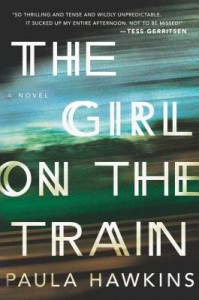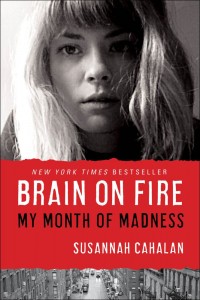This post originally appeared on Book Riot. IRL is a twice monthly feature where I pair popular fiction with some great nonfiction. You can see all of my writing at Book Riot by following this link.
 The Girl on the Train by Paula Hawkins is a twisty thriller narrated by three different struggling, unreliable women. Our main character, Rachel, is an alcoholic who rides the train every morning, catching glimpses of the lives of a couple along her route. One day, the woman, Megan, disappears and Rachel feels like she needs to do something. Complicating her quest is the presence of Anna, the woman who helped send Rachel’s life spinning out of control.
The Girl on the Train by Paula Hawkins is a twisty thriller narrated by three different struggling, unreliable women. Our main character, Rachel, is an alcoholic who rides the train every morning, catching glimpses of the lives of a couple along her route. One day, the woman, Megan, disappears and Rachel feels like she needs to do something. Complicating her quest is the presence of Anna, the woman who helped send Rachel’s life spinning out of control.
It’s a page-turning read, and a perfect jumping off point for some great books that explore ideas of both madness and forgiveness in this installment of nonfiction recommendations. Because this post assumes you’ve read The Girl on the Train – or don’t plan to read it at all – there are some small spoilers ahead. Spoiler-phobes, beware!
One of the best and most complicated things about The Girl on the Train is that our main character, Rachel, spends so much of the novel not being able to trust her own mind. The fact that she is an alcoholic, prone to periods of blackout drunkenness, means her perceptions and memories for many important events are warped or nonexistent.
 Journalist Susannah Cahalan would have this in common with Rachel. In her memoir Brain on FIre, Cahalan recounts her experience losing a month of her life as a result of a terrifying autoimmune disorder. At 24 years old, Cahalan had just started her first post-college job and was excited to embark on a new relationship. But she started to suffer from strange symptoms – migraines, paranoia, loss of feeling in parts of her body and, eventually, memory loss and seizures.
Journalist Susannah Cahalan would have this in common with Rachel. In her memoir Brain on FIre, Cahalan recounts her experience losing a month of her life as a result of a terrifying autoimmune disorder. At 24 years old, Cahalan had just started her first post-college job and was excited to embark on a new relationship. But she started to suffer from strange symptoms – migraines, paranoia, loss of feeling in parts of her body and, eventually, memory loss and seizures.
Afraid, Cahalan was admitted to a hospital where she continued to become more and more delusional. Her last memory before “waking up” a month later is being strapped to a hospital bed for her own safety. In the book, Cahalan reconstructs her “month of madness” and tries to understand this experience where she interacted with and was affected by the world, but she simply can’t recount. It’s fascinating and scary.
 The second book isn’t one that reminds me of any of the women in this book, but is instead a book I wish that I could get all of them to read – Tiny Beautiful Things by Cheryl Strayed.
The second book isn’t one that reminds me of any of the women in this book, but is instead a book I wish that I could get all of them to read – Tiny Beautiful Things by Cheryl Strayed.
Before Strayed wrote her fierce and wonderful memoir Wild, she wrote an advice column for The Rumpus called Dear Sugar. In the column, Strayed as Sugar answered all sorts of questions about love, life, death and being empathetic and courageous. Tiny Beautiful Things collects many of her best Dear Sugar columns, as well as some new pieces, together in one book. While I’ve never experienced many of the questions that Strayed addresses, reading this book gave me some profound, important insight into my own life. I know that Strayed would have wonderful, kind, no-nonsense things to tell Rachel and Anna and Megan.

Comments on this entry are closed.
I saw this post on Book Riot and it’s such a creative idea! And I can see the parallels with Brain on Fire, which was fascinating.
Brain on Fire was such a good read, so scary and interesting.
I loved The Girl on the Train and Brain on Fire so I guess I need to look for Tiny Beautiful Things.
These are both such great, unexpected suggestions! (And really, Tiny Beautiful Things should be recommended to EVERYONE.)
It totally should be! Everyone can find something wonderful in that book.
This is a great feature, Kim. I’m waiting for Tiny Beautiful Things from the library – it sounds like such a lovely read.
Nice picks, I’ve read all three of them 😉 Really liked all of them too!
The Girl On The Train sounds intriguing!